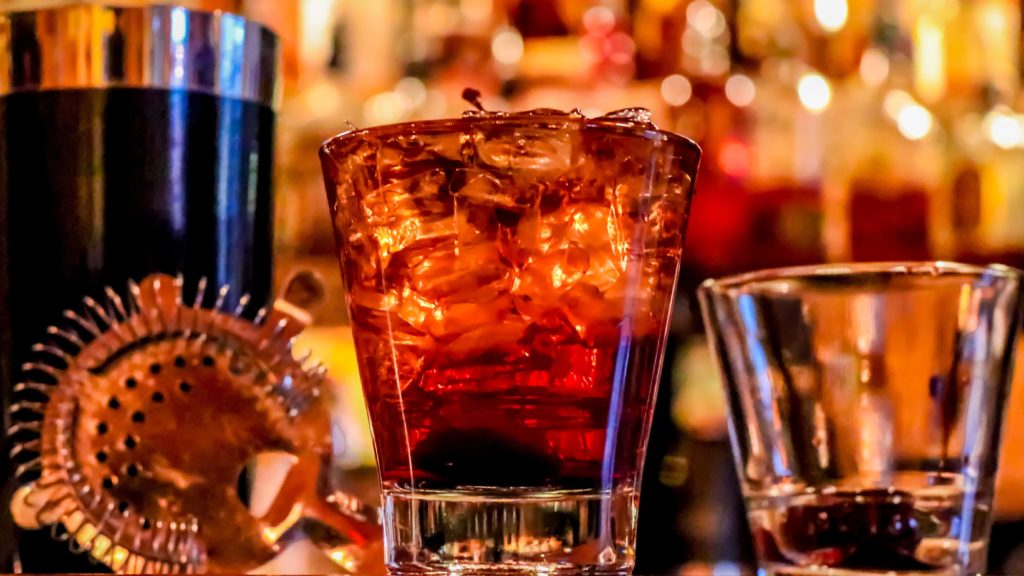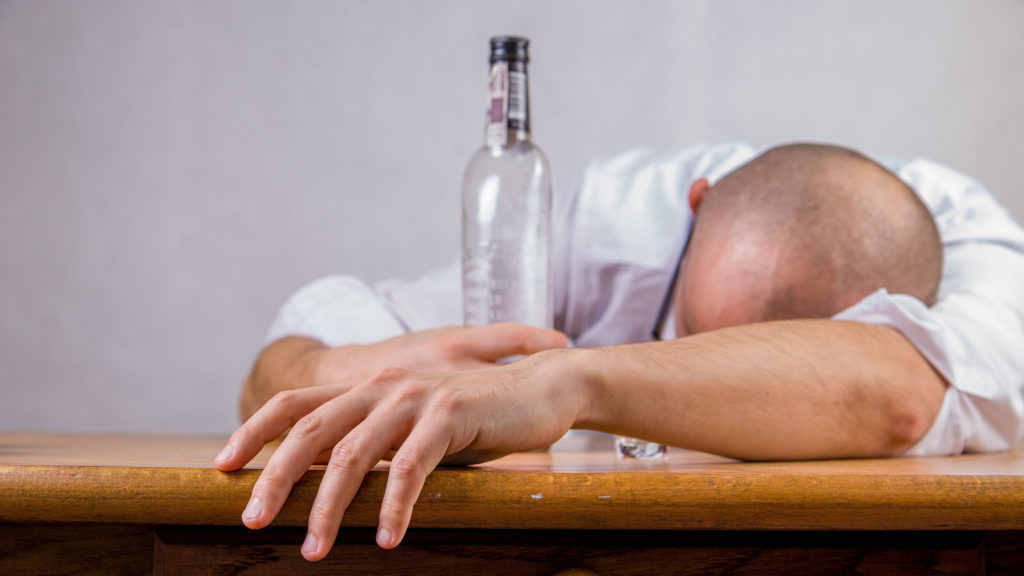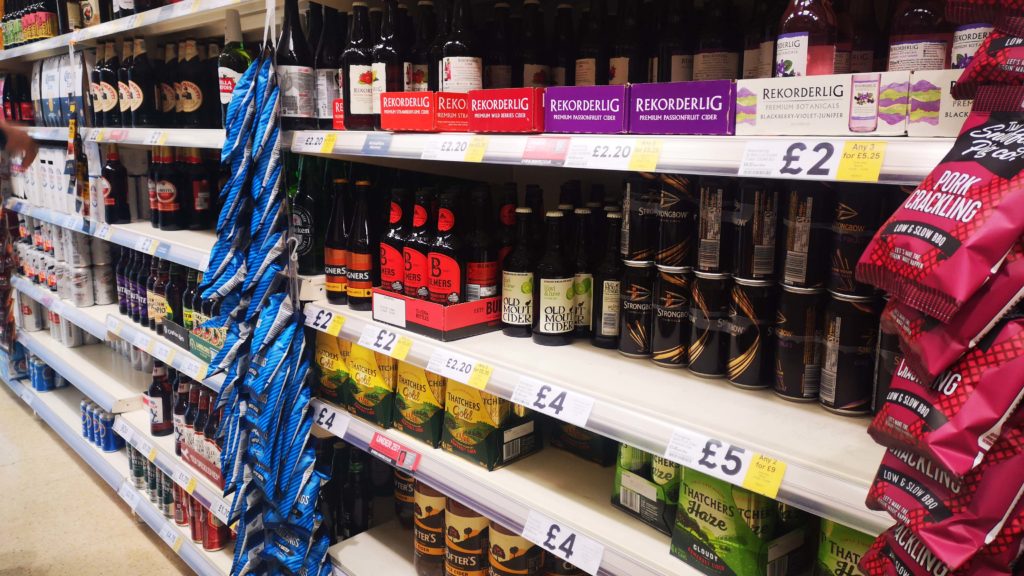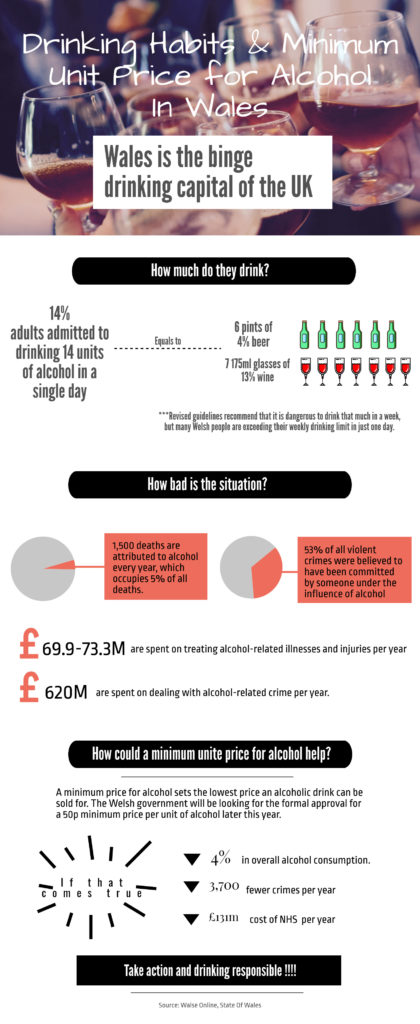The Welsh Government will formally go for approval of a 50p minimum unit for alcohol later this year, will that be effective enough to tackle drinking problems in Wales?

Robert Andrew Chamberian lost his job and apartment 25 years ago, that’s when he started to drink every single day. Long-term drinking has a huge effect on him physically and mentally. “It’s damaging not only to my brain, but also to my body, to my lifestyle, it got me into trouble with the police, and I ended up locked up in prison on many occasions, alcohol greatly destroyed my life,” said Robert.
Actually, Public Health Wales Observatory has observed that alcohol is a major cause of death and illness in Wales, leading to lots of health and social harms. In 2017-18, the hospital admissions related to alcohol misuse were up to 55,000, costing the Welsh NHS £150 million annually, which addresses health concerns around the effects of excess alcohol consumption.

Fortunately, introducing a minimum alcohol price may be a practical and well-targeted approach to tackle drinking problems. As disclosed by a review of published by Bangor and Glyndŵr Universities in 2011, the consumption of alcohol is highly sensitive to changes in price, when alcohol becomes more expensive, less would be consumed. Therefore, a pricing intervention could be essential to tackle alcohol misuse and reduce alcohol-related harm.
Due to that reason, the Welsh Government will be going for formal approval of a 50p minimum unit for alcohol later this year. “We believe a minimum unit price strikes a reasonable balance between the anticipated public health and social benefits and intervention in the market,” said Vaughan Gething, Minister for Health and Social Services in Wales.
According to the Welsh Government, the set of a 50p minimum alcohol price mainly targets on the sale and supply of low-cost and high-strength alcohol, which is usually sold in the supermarkets. However, a confusing part is that it may increase the supermarket profits at the expense of consumers because it will no doubt drive up the price of some drinks. Under that circumstance, many people have called for better use of the additional revenue for retailers.

Some reckon that HM Treasury should take a portion of this new revenue through increasing VAT and excise duty. “We would advocate dialogues between the Welsh Government and HM Treasury as to how these new monies might be redirected to assist those affected by alcohol problems,” said Andrew Misell, Wales Director of Alcohol Concern Cymru, a charity aiming at ensuring more people in Wales understand sensible drinking.
Another suggestion is that the money should be used to prevent people from ending up in difficulty. “Alcohol isn’t causing the problems in the first place, I do believe that it isn’t a good idea to raise the price of alcohol, but if it is to be raised, then the money should be used to help people, if the government spend more money building houses in accommodating people, then people like myself wouldn’t be drinking for many years,” said Robert Andrew Chamberian.
Meanwhile, research published by the University of Sheffield showed that people with lower incomes appear to suffer more significant risks of harm from their drinking, which raise another debate.
Some people reckon the low-income groups as the biggest beneficiaries of the policy in terms of health improvement. “What is actually happening here is the poorest people generally in our community are buying that stuff and then just thinking that all the time, that becomes a big problem, and what will happen is that they used to be able to afford 10 ciders, but they can only buy 5 now,” said Councilor Ramesh Patel, who considered the drinking problem of lower-income groups are a serious problem in the local community.
However, other people are worried that a minimum alcohol price may increase either the household budgets of a low-income group or the risk that they may switch to other cheaper substances. “Making the alcohol a minimum price is not going to stop it, they will find a way, there will be more street crime so that they can afford it, or they will move from alcohol to another more affordable drug,” said Karen Holbrook, operation manager of the Huggard, a Cardiff-based charity tackling homelessness.

Actually, the availability of alternative substances for alcohol misusers is also the main problem among the young ‘binge’ drinkers, who have a range of mainly social problems that are using alcohol in a problematic way early in their lives. “my concern would be that if alcohol is too expensive, they might turn to alternatives such as drugs, which are cheaper and easily available to them,” said professor Ian Hamilton, lecturer in Mental Health and Addiction at University of York, who is specialised in the study of British drinking habits.
Moreover, the latest data of Office for National Statistics points out that it is middle-aged people who suffer most harm from alcohol, including several cancers, problems with the liver and addiction. However, since many middle-age drinkers are wealthy enough to afford more expensive drinks, a minimum alcohol price may make no difference to them. “The minimum price will not hit people who are drinking large amounts of more expensive drinks, they may notice an increase in the price of some of their usual drinks, whether it will push them to drink less is another matter,” said Andrew Misell.
A bigger flaw of a minimum alcohol price is that it seems to be useless in a way in helping alcohol-dependent drinkers, who have become physiologically dependent on alcohol as a result of long-term heavy use and need to regularly consume alcohol in order to avoid physical withdrawal symptoms or even deaths. “It’s not the about the price, because those people don’t mind how much a beer costs, they just always look at the beer,” said Justin Horwath-Davis, whose family used to own three pubs.

Additionally, there are currently around 36,000 people in Wales are dependent drinkers, local services may not be capable of dealing with the growing number of people seeking support brought by the introduction of the minimum alcohol price. “We might see an increase in demand for treatment but I’m afraid that savage cuts to treatment will mean it will become harder for people to get this help in a timely and effective way,” said professor Ian Hamilton.
To solve that problem, Andrew Misell argued that the introduction of a minimum price of alcohol must be followed by sufficient professional healthcare services to help dependent drinkers quit destructive drinking without potentially dangerous consequences. He said, “we should never underestimate the difficulties faced by those seeking to change their ingrained drinking habits, we will need to ensure that adequate support services are in place.”
Furthermore, compared to financial stimulation, some people consider promoting education a better way actually to change people’s mind and behaviour. Take the young generation as an example, in fact, the UK has seen a gradual decline in underage drinking since around 2002, and social media seems to have a huge influence on the younger generation’s drinking habits. “Young people may not want negative images or narratives about being intoxicated made public,” said Professor Ian Hamilton.
Andrew Misell also agreed that younger people are spending more time socialising online instead of drinking together. Under that circumstance, education online would be an efficient way to influence people’s attitudes. “The alcohol industry has a huge advertising budget and clearly wants to sell as much of its product as possible, so evening up this with a decent budget for public health is critical if we are to redress the significant harm that alcohol is responsible for in our society,” said Professor Ian Hamilton.
Nevertheless, despite that minimum unit pricing has its drawbacks and there are other alternatives to choose, it may at least get people to think about their spending or perhaps even try to reduce the amount they spend on alcohol. Just like what Councilor Ramesh Patel said, “It doesn’t solve the problem, it reduces the problem, we’re hoping that gradually they become less reliant on that alcohol, that’s the thinking behind it, but it looks bigger than that, it’s about the health of the city.”
Here is the explain video of a minimum unit price for alcohol
Here is the infographic of current drinking problems in Wales


